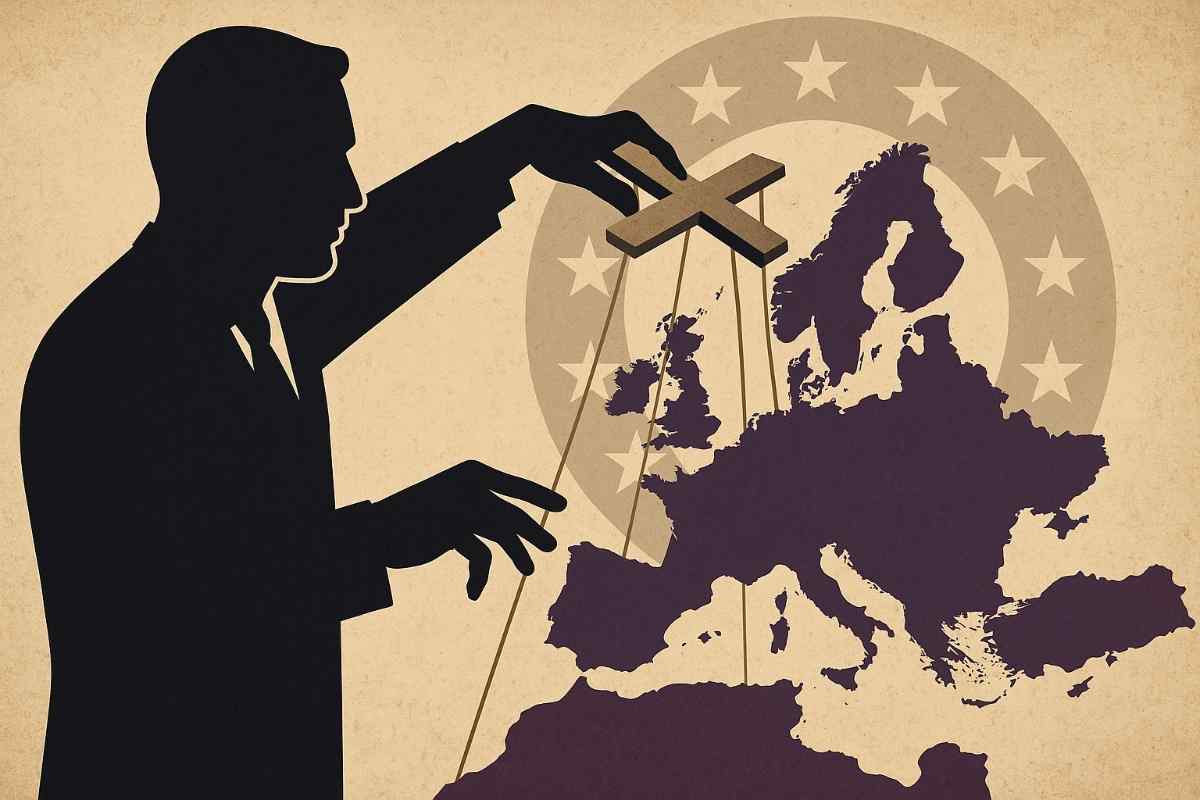Volt Europa: A Pan-European Façade with a Global Agenda

Volt Europa presents itself as a fresh, progressive, pan-European movement aiming to transcend the borders of the nation-state. Transparency, sustainability, human rights, and European cooperation are the core themes in their messaging. But behind this idealistic façade lies a political project with strong ties to globalist institutions, technocratic networks, and dubious financial channels. Volt is not merely a party, but a vehicle for an ideological shift that undermines democratic oversight.
The funding: transparency or smokescreen?
Foreign donors and NGO networks
Although Volt claims all its donations are transparently listed, public records reveal that a significant portion of their funding comes from networks surrounding private foundations, progressive American donors, and EU-funded NGOs. According to investigative journalism by Follow the Money, Volt candidates are often supported through a web of subsidies, civil society projects, and “civic tech” platforms—many of which are themselves financed by entities such as the Open Society Foundations, the European Endowment for Democracy, and similar institutions (De nieuwe pan-Europese partijen: idealisme of invloedsspel?, FTM).
While these funds may appear to operate with noble intentions, their central role in bankrolling political parties like Volt raises serious questions about democratic legitimacy. Those who fund, influence—if not control—outcomes. The role of such transnational actors in national elections is both politically and legally controversial.
Smart detours: campaigning via foundations
Like other new parties, Volt uses legal structures such as foundations and civic platforms to campaign without being subject to the same financial oversight as traditional parties. Under the guise of “citizen participation,” events, media campaigns, and youth programs are sponsored that in effect amount to party propaganda.
According to political finance professor David Farrell, this is “a clever but dangerous way of conducting party politics without accountability” (Shadow Parties and Political Foundations, Farrell).
Pan-European but ideologically uniform
A uniform agenda under the flag of diversity
Although Volt claims to be pluralistic and representative of a new generation of Europeans, their ideological agenda is remarkably uniform. In nearly every country where Volt is active, the party promotes a pro-EU, pro-globalist agenda: more Europe, more migration, more digital control (such as through European digital IDs and central bank currencies), more climate restrictions, and a marginalization of national sovereignty.
Volt’s programs in the Netherlands, Germany, France, and Belgium are almost identical. The rhetoric of “diversity” and “solidarity” goes hand-in-hand with a technocratic faith in data, algorithms, and supranational solutions. National culture, tradition, and identity are not defended—they are ignored or treated as problematic.
As sociologist Wolfgang Streeck notes: “Volt is not a popular movement but an elite project with an Instagram filter” (European Federalism as Oligarchic Technocracy, Streeck).
The globalist signature
Volt’s positions align perfectly with the policies proposed by institutions such as the European Commission, the World Economic Forum (WEF), and the United Nations. This is no coincidence. Several Volt members have links to WEF partners, NGOs that cooperate with the IMF, or EU programs that blur the lines between politics, commerce, and ideology.
Volt’s views on migration, climate, economics, and digital governance neatly fit the mold of globalist “solutions” that require citizens to submit to powers beyond their reach.
Control through digital instruments
Digital identity and social surveillance
Volt advocates, in multiple countries, for the implementation of an EU-wide digital identity. According to the party, this would provide citizens with access to healthcare, education, and public services. In reality, it opens the door to centralized control of behavior, medical records, travel movements, and consumption patterns.
The digital euro, also supported by Volt, is a next step in the ability to track and steer individual behavior, as demonstrated by economist Richard Werner in his analysis of monetary centralization (CBDCs and the Control Grid, Werner).
Volt promotes these projects in the name of efficiency and justice, but avoids fundamental questions about freedom, privacy, and the concentration of power.
Censorship in the name of inclusion
Like many globalist-inspired parties, Volt supports “anti-discrimination” legislation that in practice leads to the suppression of dissent. They support hate speech laws, cooperate with fact-checkers, and call for tighter online regulation. Free speech is subordinated to subjective definitions of “safety” or “inclusion.”
As political scientist Eric Kaufmann observes: “Leftist globalist parties shift from liberty to control the moment they gain cultural dominance” (Whiteshift, Kaufmann).
Volt as a symptom of post-democracy
The illusion of choice
Volt presents itself as an alternative to established parties, but essentially parrots the rhetoric of the EU bureaucracy and its allies. By organizing itself across borders, Volt bypasses national representation and folds it into a swamp of centralized policymaking.
Volt is therefore not a counterpower, but a reinforcement of the existing technocratic model that sees citizens primarily as consumers, data points, and obstacles to “transition.”
Citizen, consumer, or subject?
The core question is what Volt teaches us about the future of democracy. When parties are formed by NGOs, financed through transnational networks, and aligned ideologically with economic elites, we are witnessing a shift in power.
Volt does not represent a grassroots movement but an elite project in purple wrapping—attractive, young, modern, but lacking accountability, roots, or real dialogue. Under slogans of progress and unity lies a system that is increasingly intolerant of dissent and concentrates more power in opaque networks.
Conclusion: a European project without European peoples
Volt is the prototype of the post-democratic party: seemingly inclusive, but practically exclusive; pan-European in name, technocratic in nature. Funded by powerful networks and driven by an ideology that distances itself from national communities, traditional values, and individual freedoms.
For those who look behind the façade, Volt does not show a hopeful future—but a harbinger of centralization, control, and cultural alienation. It is time to judge the project not just by its words, but by its actions and its structure.


















